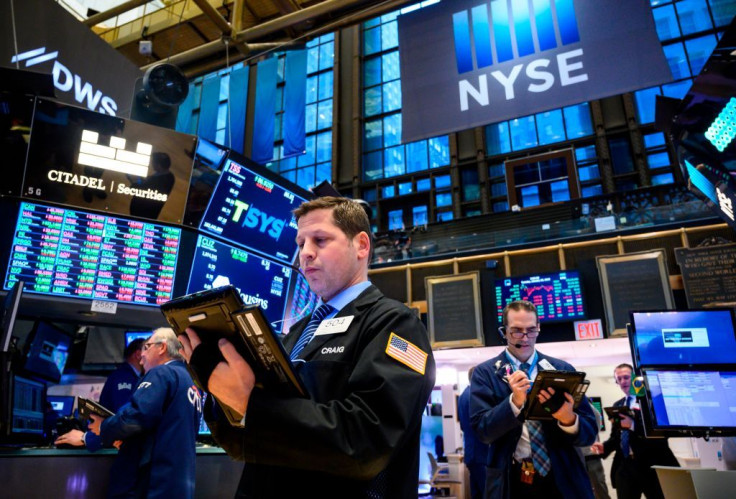Stocks Bounce Back On News US-China Trade Talks Still Not Dead

Monday’s expected Wall Street rout on account of president Donald Trump’s new China tariffs fizzled as investors took heart from news China will still send a delegation to resume the stalled talks on Wednesday.
The Dow made an incredible comeback Monday, recouping nearly all of 471 point plunge on hopes, however slim, the trade deal with China isn’t dead. Wall Street’s optimism will be put to the test Tuesday after president Donald Trump tweeted Monday to confirm he will indeed impose 25 percent tariffs on $200 billion worth of Chinese goods on May 10.
Trump apparently made the reaffirmation in the wake of statements from other members of his administration his original tweets announcing the new sanctions on Sunday were only a negotiating tactic intended to wring more concessions out of Chinese.
On Monday, stocks sold-off at the opening bell, plunging by 471 points but clawing back upwards after CNBC reported a Chinese negotiating team will still travel to Washington to continue the stalled trade talks. Trade negotiations between Washington and Beijing are set to resume Wednesday but are not expected to achieve any sort of breakthrough in light of Trump’s reigniting the trade war.
The Dow Jones Industrial Average ended Monday down just 66.47 points at 26,438.48. The S&P 500 closed 0.4 percent lower at 2,932.47 while the NASDAQ Composite lost 0.5 percent to end at 8,123.29.
The Dow plummeted by as much as 471 points, while the S&P 500 traded down 1.2 percent at its lowest. The NASDAQ was down 2.2 percent, albeit briefly.
Analysts said stocks fell at the opening after Trump’s Sunday tweet. Trump also threatened to impose 25 percent tariffs on an additional $325 billion of Chinese goods “shortly.” He also expressed frustration the talks, which he sees as vital to his re-election in 2020, are moving “too slowly,” with China wanting to re-negotiate terms of the deal.
Some analysts remain optimistic the talks are headed in the right direction, however.
“What happened overnight is a bit of posturing on both sides,” said Michael Arone, chief investment strategist at State Street Global Advisors. “I think both sides want to continue the progress to reach a trade agreement. I think it’s a short-term hiccup in a longer-term move up from the market.”
© Copyright IBTimes 2024. All rights reserved.





















